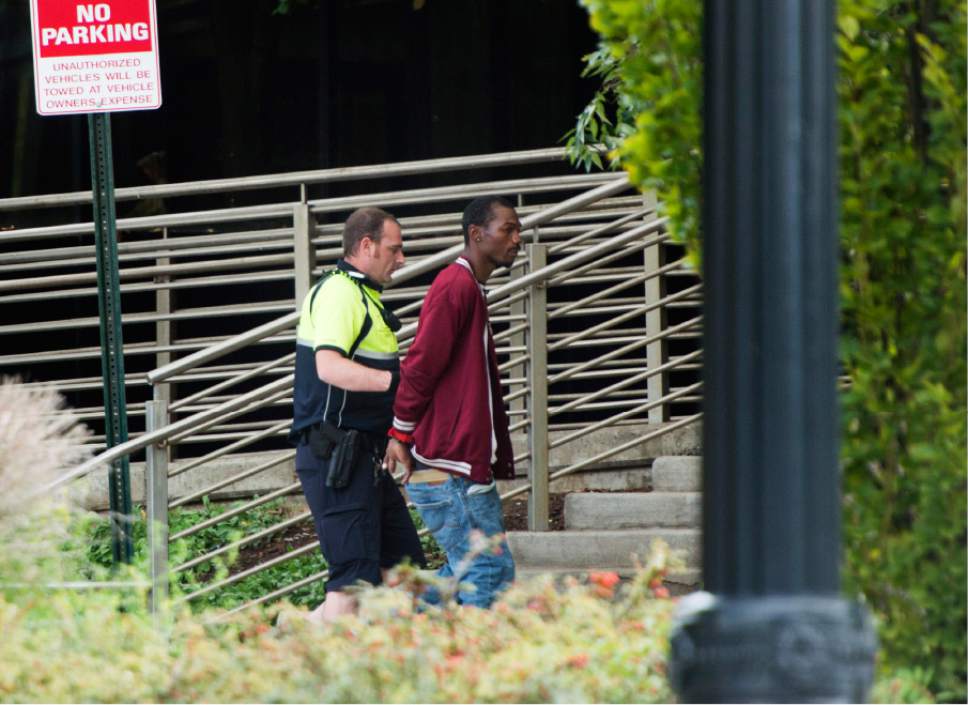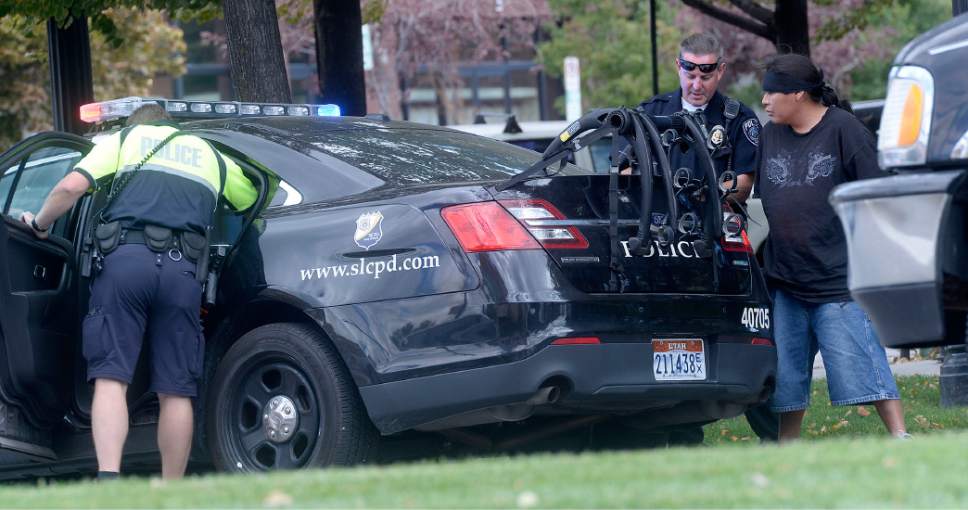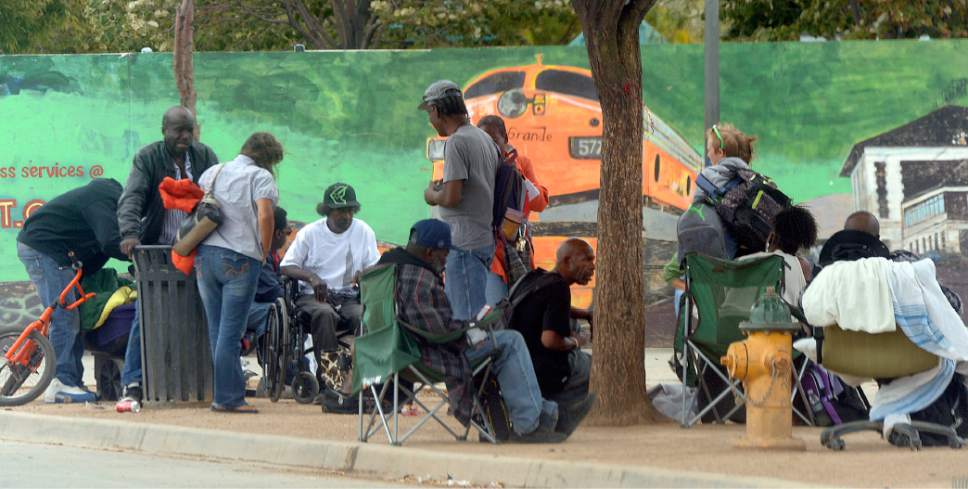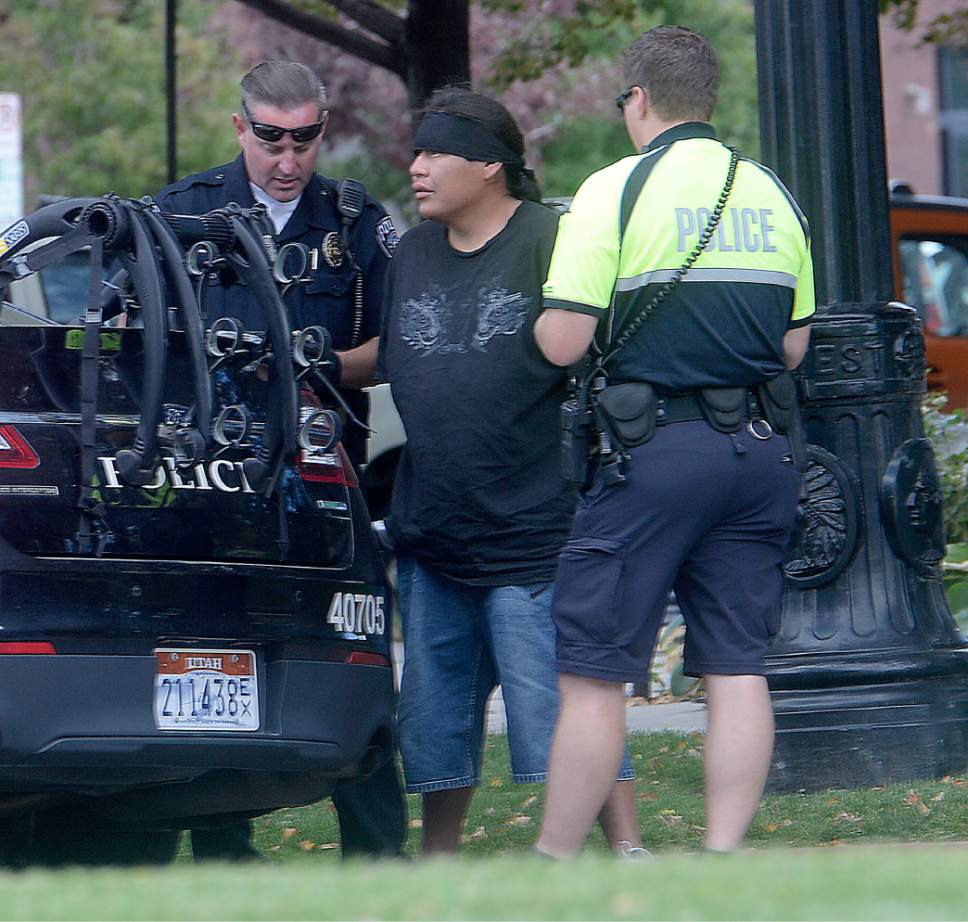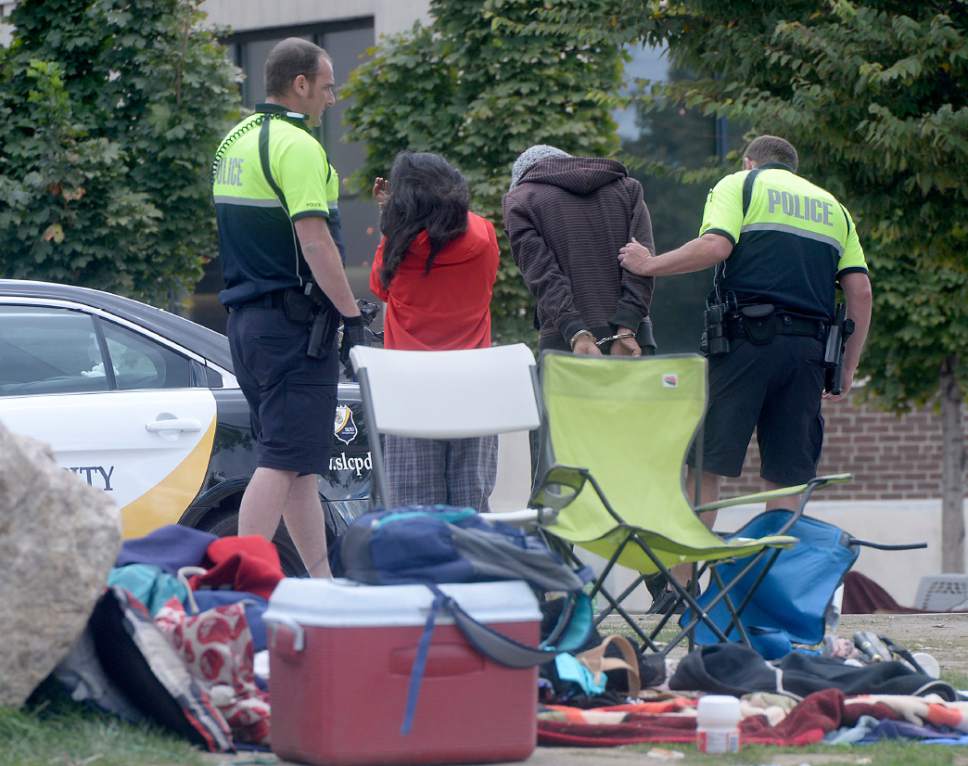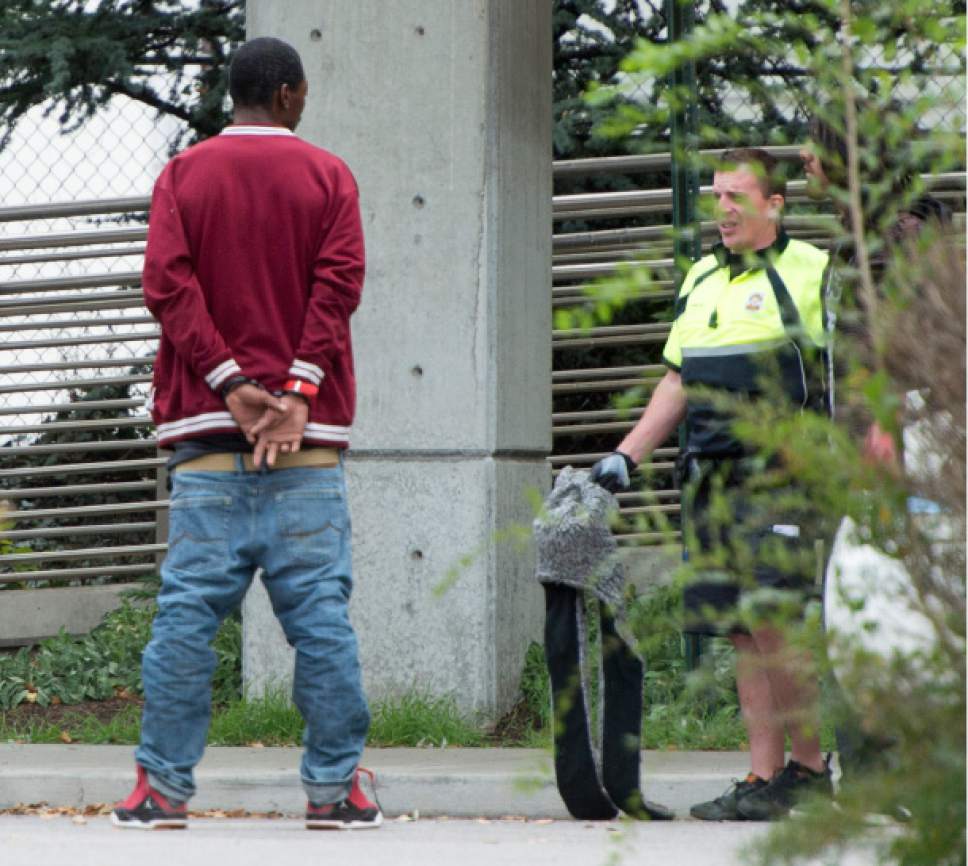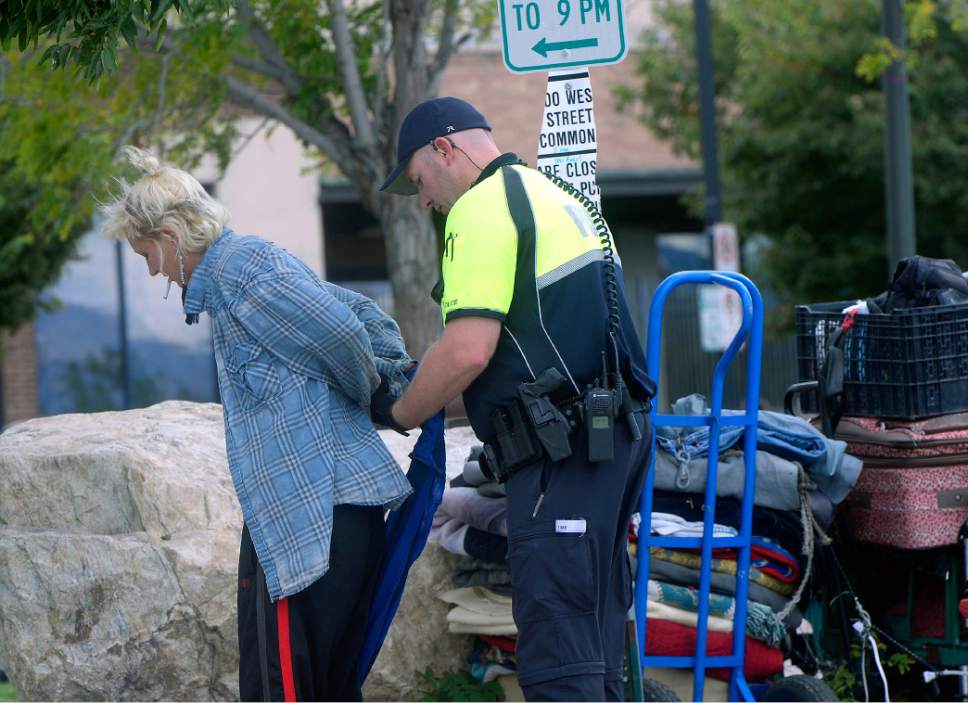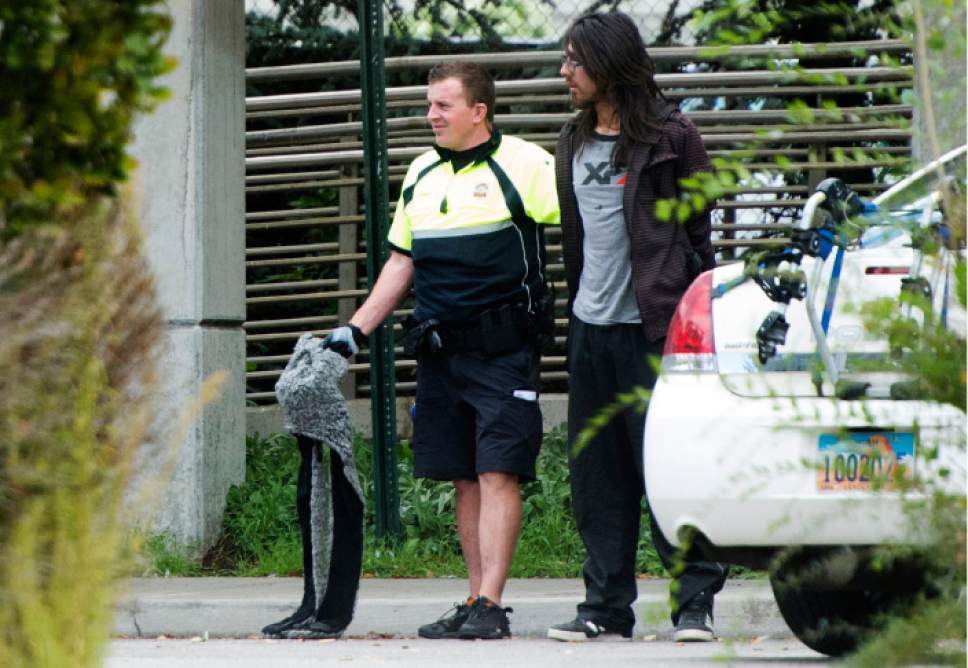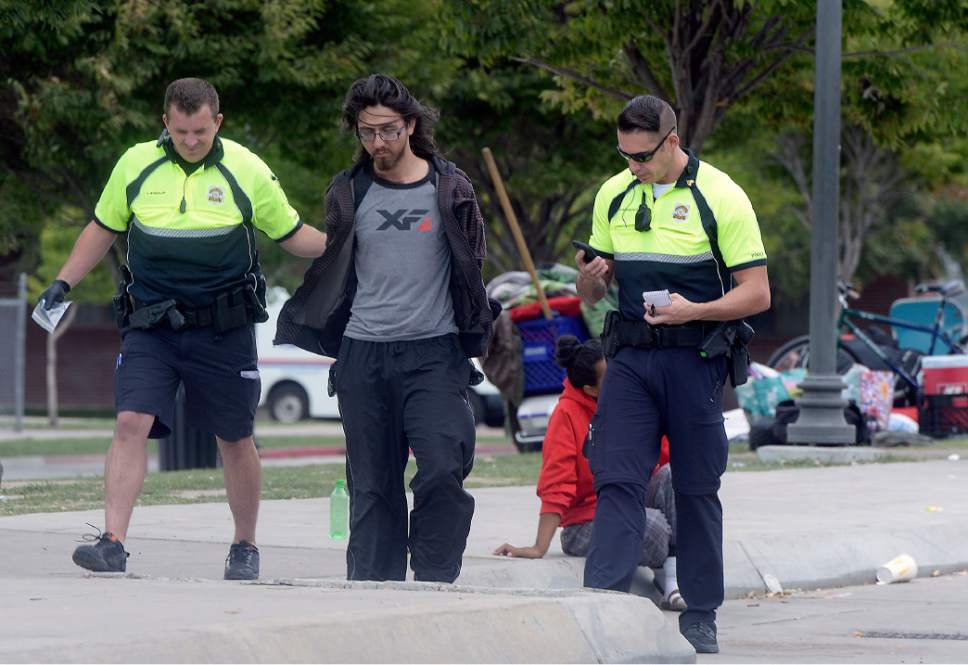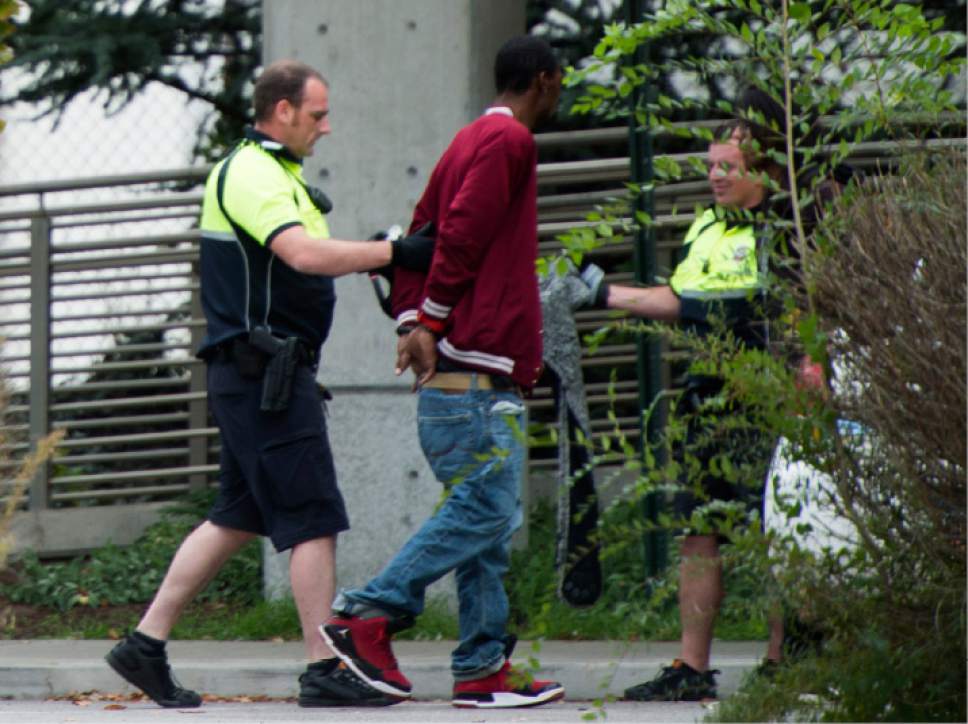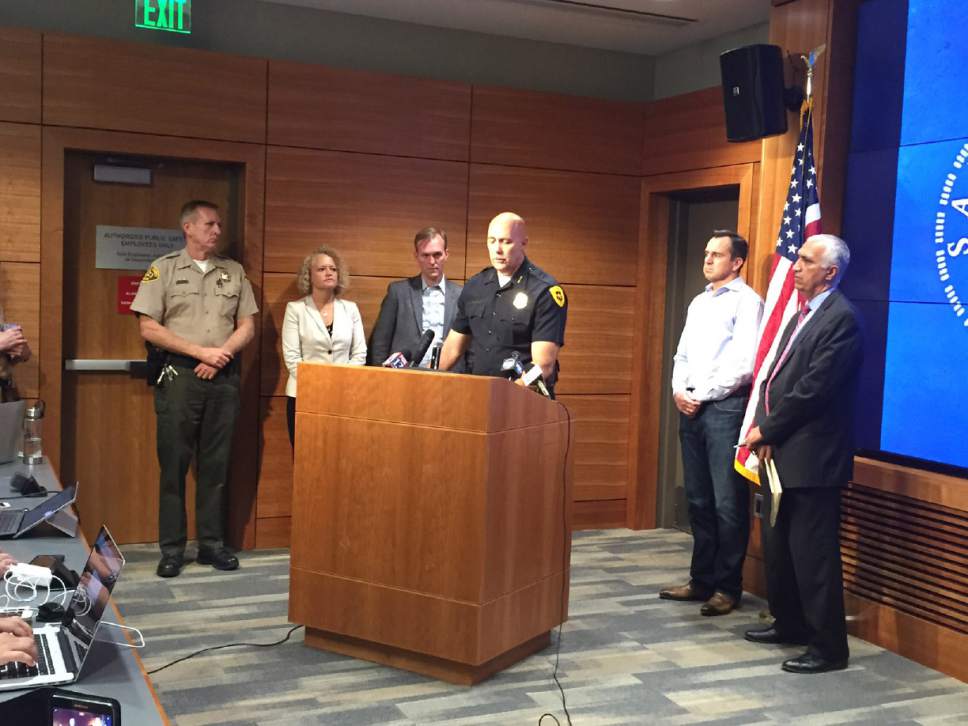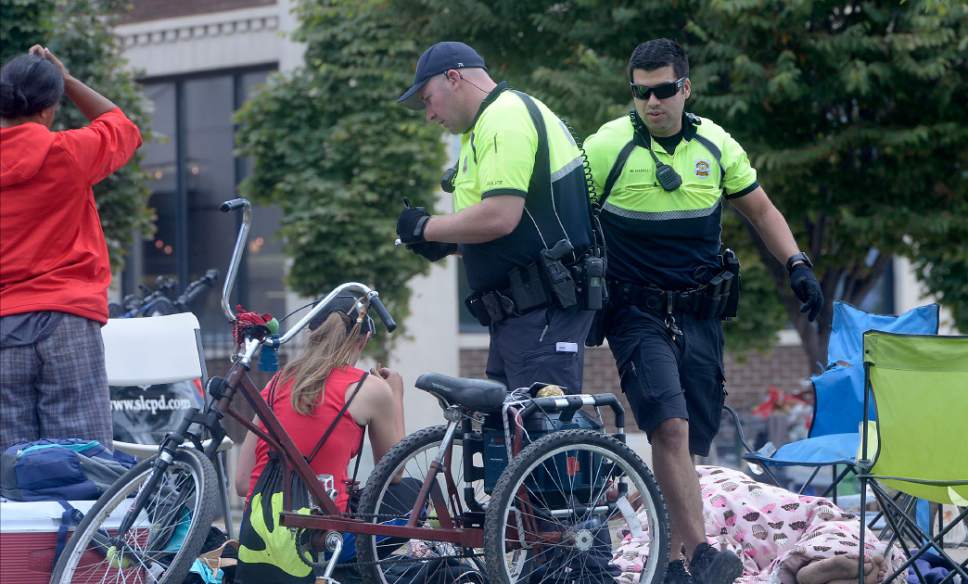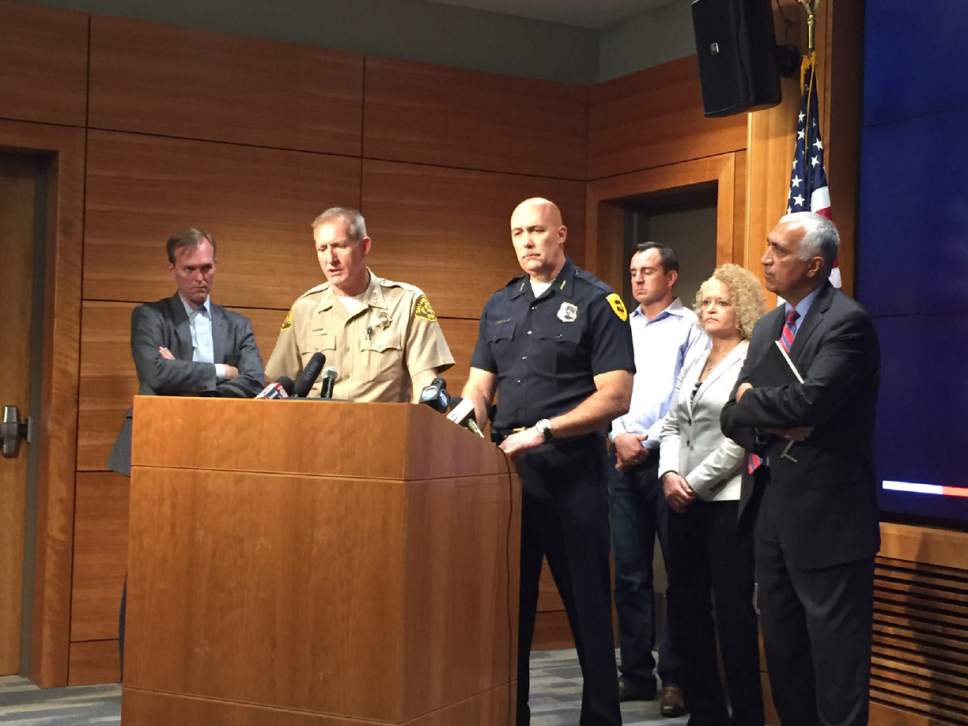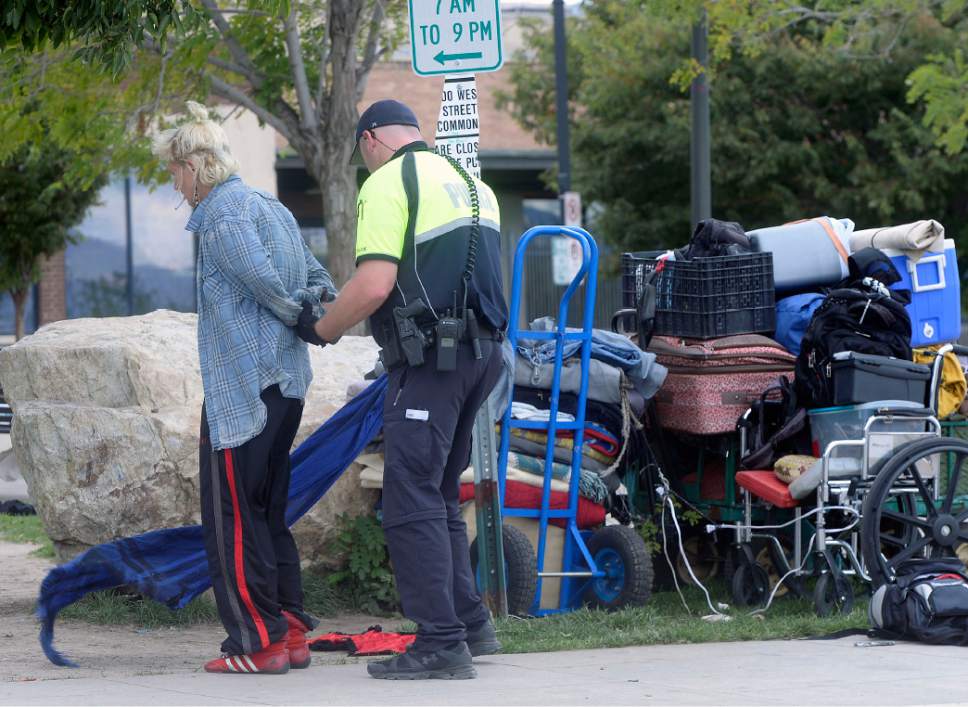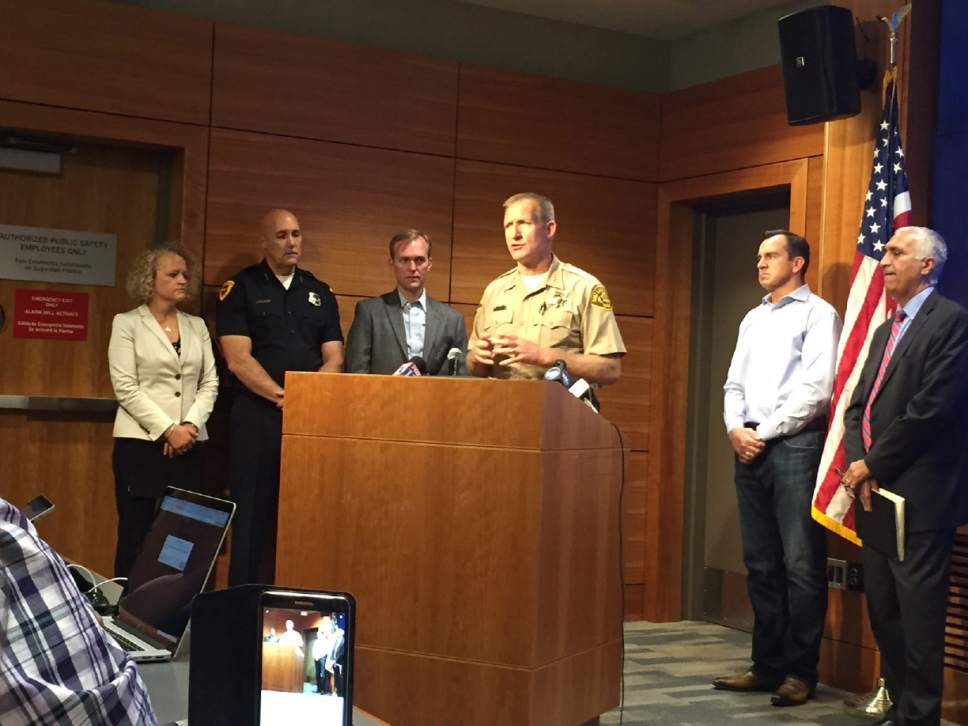This is an archived article that was published on sltrib.com in 2016, and information in the article may be outdated. It is provided only for personal research purposes and may not be reprinted.
Responding to an upswing in violence and an increasingly frustrated business community, local leaders launched a targeted strike against the open-air drug market operating in the Rio Grande neighborhood of downtown Salt Lake City.
"Operation Diversion" launched early Thursday as police officers arrested 49 people from the crowds of homeless and the drug dealers who hide among them on allegations ranging from selling heroin to being drunk in public, or for having outstanding warrants. Instead of ferrying them off to jail, they were taken to an empty bank building next to the Salt Lake City police headquarters. From that receiving center, 12 went to jail, 30 went to treatment programs and two were taken to an area hospital to receive medical attention. Officers skipped the receiving center for five people, who went directly to jail.
Waiting for arrestees at the empty bank building were sheriff's deputies, public defenders and criminal-justice screeners. Each person taken to the receiving center underwent a 90-minute assessment. Many were then offered a choice: Go to inpatient treatment immediately or to a jail cell. Those suspected of serious crimes weren't given that option.
This is an unprecedented effort coordinated among Salt Lake City, Salt Lake County, the district attorney and treatment providers.
Salt Lake County Sheriff Jim Winder said they were responding to a "crisis," but warned that while this coordinated attempt may be promising, it is far from a silver bullet.
"This is an experiment," Winder said. "The citizens should not expect that they wake up tomorrow and this situation has evaporated."
It's possible some of the plan won't work, but he said he's confident it will be "much more successful than what we have been doing over the past many years."
He said that's a "collective indictment" on the community and its political institutions for allowing drug dealing among and within the homeless population to get out of control.
In the past two months, there's been a machete attack, a mass stabbing, a fatal shooting and assaults on police officers in the area, where Salt Lake City Police Chief Mike Brown says drug dealers are concealing themselves among between 1,500 and 2,000 homeless people.
Increasing crimes and violence prompted Jason Mathis, executive director of the Downtown Alliance, to criticize the "lawless chaos" and pressure Salt Lake City Mayor Jackie Biskupski and Salt Lake County Mayor Ben McAdams to take action. Other business leaders have raised a chorus of concerns since then.
Operation Diversion has been in the planning stages since June, relying on $150,000 from the city and $1.2 million from the county. The money will pay for six months of intensive drug treatment for roughly 150 people and at least 18 months of criminal prosecutions led by Salt Lake County District Attorney Sim Gill. Each person will be tracked to determine if the program is having the desired effect. If this experience is deemed a success, local leaders will seek funding from the state Legislature, including a portion of a modest expansion of Medicaid that is still being vetted by the federal government.
House Speaker Greg Hughes, R-Draper, attended a news conference announcing the operation and offered his support.
"There is more work to be done, but the good sign is we are all coming together in an important way," said Hughes, who lamented seeing baby strollers near the drug dealing and violence. "We collectively as a state have to get to the point where this is absolutely unacceptable and we have this on the front burner as an issue that we are not going to withdraw from."
McAdams said this effort should provide relief to area businesses and residents while giving treatment to those who need help and jailing those who are preying on the drug addicted.
Mathis praised the push, saying: "We are grateful that political and law enforcement leaders are taking this crisis seriously and working hard to improve conditions."
The police will duplicate Thursday's arrest blitz, but Biskupski wouldn't say when to preserve an element of surprise.
"This isn't a one-day deal," she said.
Each person was teamed up with an attorney at the makeshift intake center. Those willing to go to treatment may be able to avoid criminal charges. Tim Whalen, director of Salt Lake County Behavioral Health Services, had 10 detox beds and 52 residential treatment beds available for this experiment, along with more extensive outpatient treatment and methadone assistance.
Brown, the Salt Lake City police chief, expects those dedicated treatment beds to make all the difference. His officers are frustrated by frequently arresting people in the Rio Grande area, only to find them released that same day.
"I've said time and time again that we cannot arrest our way out of this problem," he said. "We need to look at healing people and making them whole again."
If this works, Winder and the county plan to build a $60 million to $70 million center with at least 400 beds focused on those in the criminal-justice system with mental-health and drug-addiction problems.
Twitter: @mattcanham


